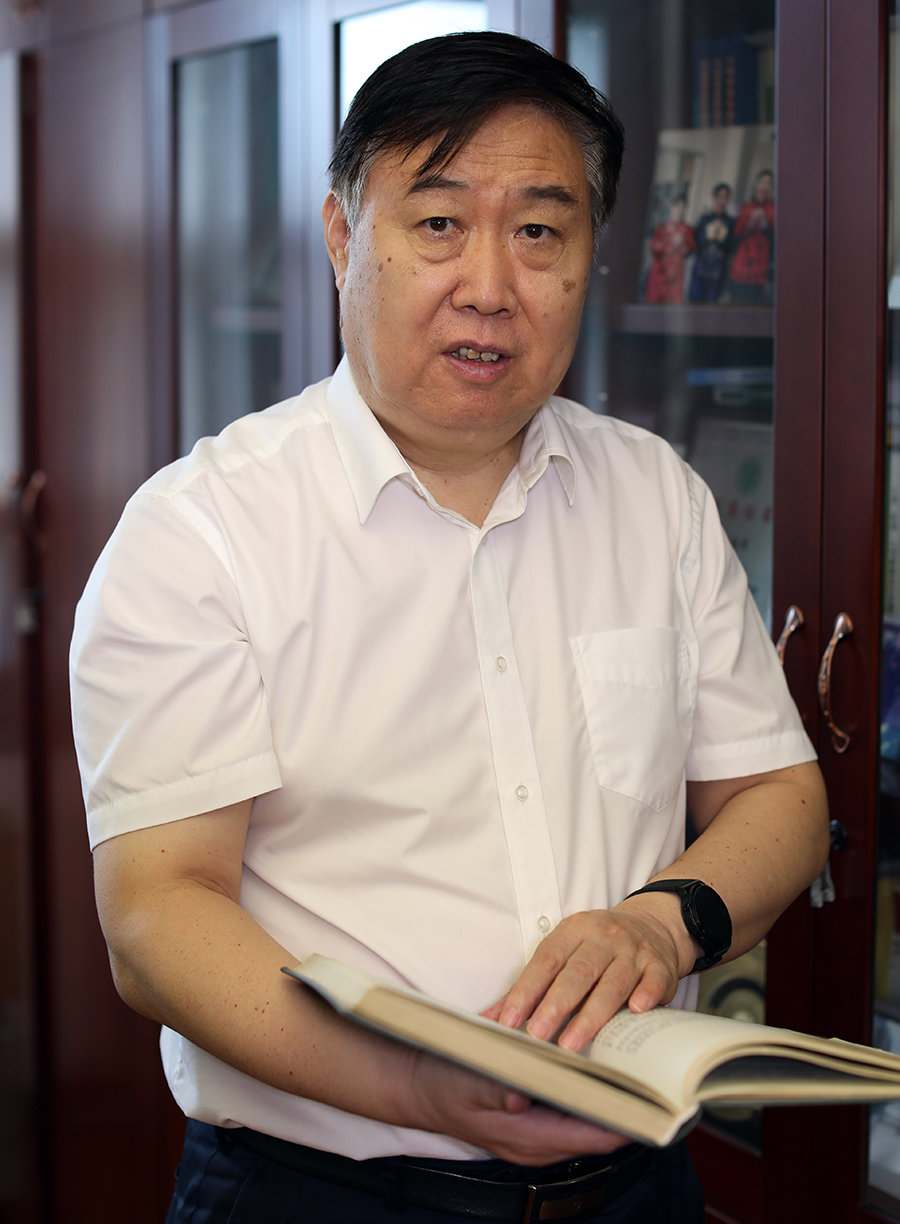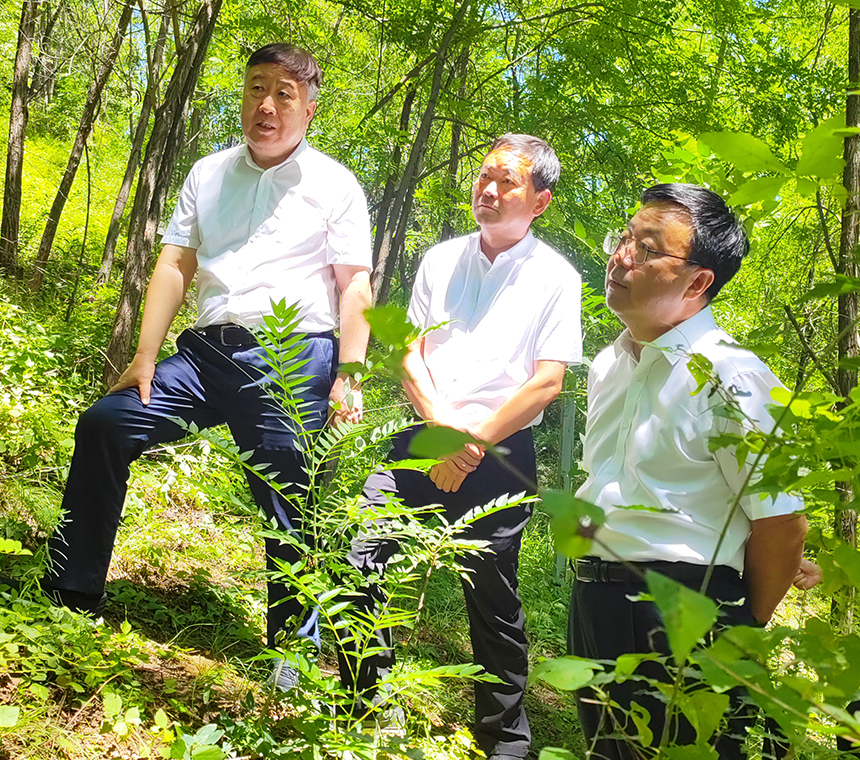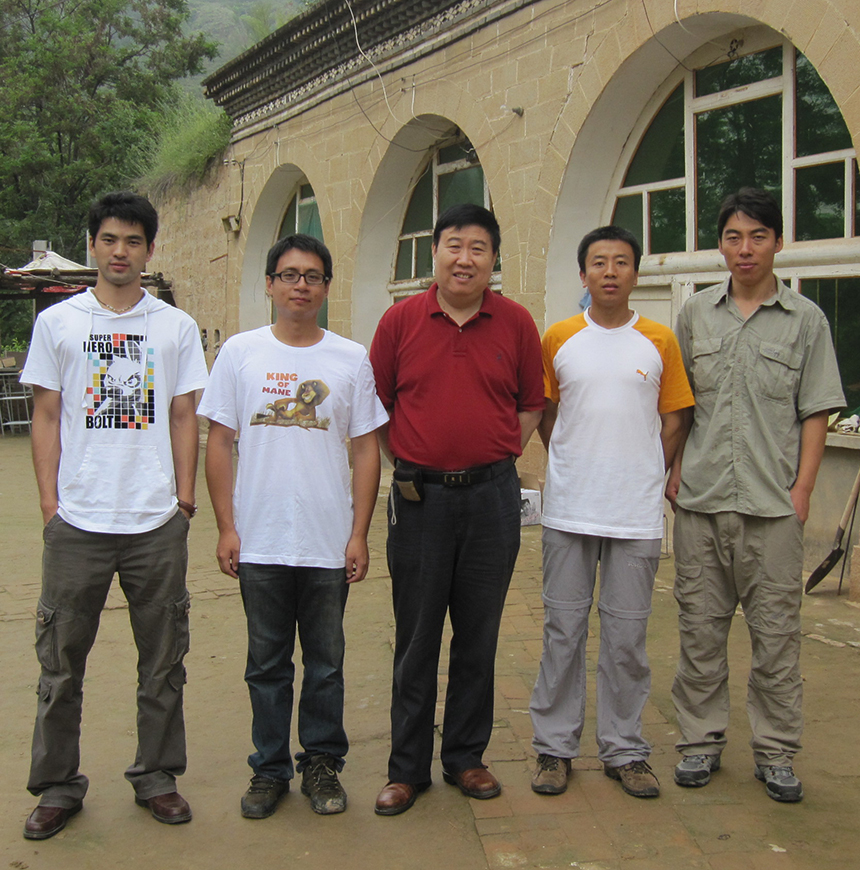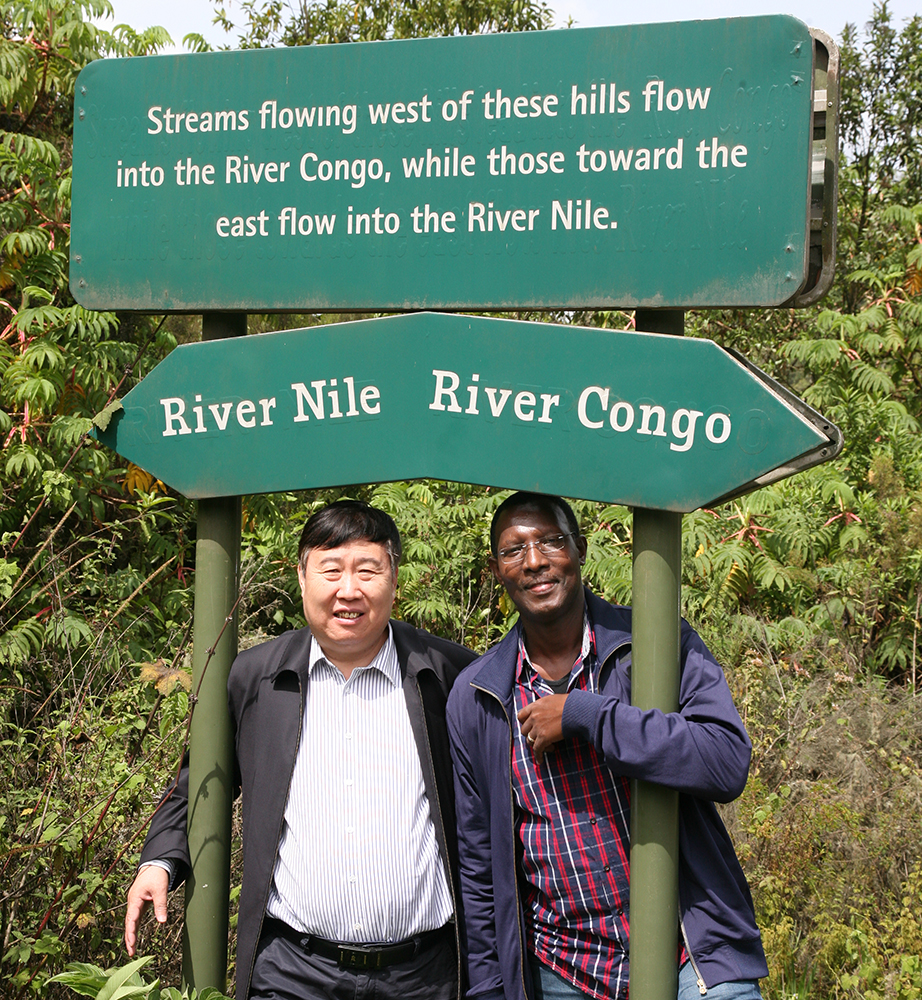
2022 TWAS-Lenovo Science Award winner Fu Bojie has not only helped China determine how to improve lives while preserving nature, but has provided sustainability strategies that every nation can use.
2022 TWAS-Lenovo Science Award winner Fu Bojie. [Photo provided]

The U.N. Sustainable Development Goals (SDGs) set ambitious targets for all the world’s nations to strive for, so that humankind might hope to prosper, sustainably and equitably. But how do nations meet them while also respecting the delicate balance between human civilization and the resource-providing bounty of nature?
This is a question addressed by this year’s winner of the TWAS-Lenovo Science Award, geographer and sustainable development researcher Fu Bojie. He is currently a professor in geography and landscape ecology at the Research Centre for Eco-Environmental Sciences of the Chinese Academy of Sciences, and his work focuses on finding evidence-based strategies to make sue civilization and nature can co-exist, and thus flourish together.
Modern human civilization has led to a rapid expansion of land used for agriculture. That, combined with climate change, has led to degradation of the world’s natural resources. Some of Fu’s most significant work has directly helped China’s expansive Loess Plateau restore its green, wild regions, while allowing people living in the area to take advantage of their natural resources in a sustainable way.
Since then, his research has extended into examining the ways different SDGs can synergize, or produce a joint effect greater than the sum of their separate effects, and ways they can interfere with each other, necessitating trade-offs. This research aims to provide strategic insight that individual nations can apply to their environmental policies as they strive to develop sustainably and meet major challenges such as preventing health risks, ending poverty and strengthening biodiversity.
“It is a true honour and thrill to have received this award,” said Fu. “I would like to thank both TWAS and Lenovo for the recognition. And I hope this occasion can highlight the importance of a strategic approach to not only finding the right balance between human civilization and nature, but to achieving the SDGs, for which the deadline of 2030 is fast approaching.”
The TWAS-Lenovo Award, one of the most prestigious honours given to scientists from the developing world, was announced today at the TWAS 16th General Conference, held online and hosted by Zhejiang University of China. The annual award, now in its eighth edition, includes a prize of USD100,000 to the winner provided by the Chinese technology company Lenovo, the global leader in consumer, commercial, and enterprise technology that is the largest PC company in the world.
“As the world’s nations strive to achieve the SDGs, sustainability science is a critical, timely field of research. And it is a key focus for Prof. Fu,” said TWAS President Moahmed Hassan. “His research — focusing on how human beings interact with the environment to inform ecological practices — directly influences how experts approach the goals set by the UN in Agenda 2030.”
"I'd like to congratulate Prof. Fu on his incredible contribution to our understanding of the interaction mechanisms between human and nature for sustainability, and for winning this year's TWAS-Lenovo Science Award," said Lenovo Senior Vice President George He. "He has conducted pioneering work on water, vegetation, soil, and the interactions of human activities and ecological restoration in ecologically vulnerable regions, and we are very happy to see this award go to such societally important scientific contributions.”
 |
|
TWAS-Lenovo Science Award winner Fu Bojie, left, taking part in ecological restoration field work in the Loess Plateau of China in 2022. [Photo provided] |
The Loess Plateau in northern China is a complex semi-arid landscape. It is sprawling — about 600,000 square kilometres in total — full of grasslands, hills and valleys, and historically a major agricultural resource within reach of the Yellow River.
Because of the plateau’s history of agricultural development, soil erosion is a serious problem there, and Fu’s early work was to establish land-use patterns that could prevent further soil erosion and strengthen “ecosystem services.”
"Ecosystem services” is how geographers refer to benefits provided to human beings by the natural environment - natural sources of food, clean air and water, and even emotional peace of mind are all examples of ecosystem services. Scientists interested in sustainable development often try to maximize ecosystem services by prioritizing environmental health, which means navigating a complex web of ecological processes, human activities, and the inevitable trade-offs that emerge.
One such trade-off, said Fu, is that reforestation is the best practice to control soil erosion, but the Loess Plateau has limited water resources and also needs farmland for agriculture. Therefore, geographical planners must find a workable balance between the two and make sure that agricultural activities are not a threat to the environment.
 |
| TWAS-Lenovo Since Award winner Fu Bojie, centre, with students during a social servey in the Loess Plateau of China in 2011. [Photo provided] |
The study influenced China’s land-use policies moving forward and Fu and his team also worked with local governments to implement their plans. One example Fu cited was the city of Yan'an. Before Grain to Green forest coverage in the city’s area was about 33 percent and vegetation coverage is about 46 percent green, he said. But now, forestland is over 53 percent and vegetation coverage is over 81 percent green.
More broadly, green coverage of more than 70 percent of the plateau increased significantly, especially in low-coverage areas. From 2000 to 2008, the average soil conservation amount of the regional ecosystem was about 153 million tons per year, and through Grain for Green, the soil conservation rate increased annually with an average of 63.3 percent. The end result was, in a sense, a combination of more green and more grain, or as Fu put it, “a win-win for restoring the environment and promoting development.”
Fu’s research has global relevance because soil erosion is a serious problem in many areas of the world. According to the 2018 IPBES Assessment Report on Land Degradation and Restoration, more than 75 percent of land on the planet is substantially degraded, undermining the well-being of 3.2 billion people. If these practices continue unchanged, 95 percent of Earth’s land could become degraded by 2050, Fu said.
Grain for Green started as far back as 1999, but today it remains one of the biggest ecosystem-restoration programmes in the world, affecting not only the Loess Plateau but land usage throughout China. Knowledge emerging from this project has since been leveraged for collaborative research between China and African countries, such as Rwanda.
 |
| TWAS-Lenovo Award Winner Fu Bojie, left, during a visit to Rwanda in 2012. [Photo provided] |
In 2019, Fu and his colleagues published a perspectives paper on addressing the complexity of achieving the SDGs in National Science Review, proposing that the 17 goals be grouped into three categories; essential needs, such as food, water, and energy; governance, such as infrastructure, urbanization and climate; and ultimate objectives, such as eliminating poverty, full gender equality and equal education. In 2020, Fu and his colleagues also proposed a new approach to advancing these goals using three focus points: classification, coordination, and collaboration. In a second perspectives paper in National Science Review, he and his colleagues highlighted that this approach will allow for short-term breakthroughs while achieving sweeping long-term progress.
"We try to think about different countries, different development levels, and also different targets,” said Fu. “Classification can also be from a local, regional and global scale. For the local scale we first think about livelihoods, and ecosystem management linked with local peoples. But for the regional or global we think of, for example, climate change mitigation.”
The researcher has been putting these proposals into practice. A further study by Fu and his colleagues, published in Nature Sustainability in May 2022, sought to determine how efforts to pursue specific SDGs complement and interfere with one another.
His research showed how some SDGs have synergy, while others require trade-offs — but the dynamics of these synergies can change depending on the stage of development a given country is in. For example, at early stages of development the preservation of land ecosystems providing fresh water can conflict with economic growth, and so finding the right balance is essential.
Meanwhile, growing societies have some synergistic priorities, too. For example, better infrastructure and good health are strongly correlated. This can provide a roadmap for where nations and communities can focus their development efforts to meet the goals.
"In low development settings, most countries have to provide basic needs, from food to water to land,” he explained. “But we also need the ecosystem to meet these objectives, and good governance and management to promote these SDGs,” he concluded. (TWAS)

86-10-68597521 (day)
86-10-68597289 (night)

52 Sanlihe Rd., Xicheng District,
Beijing, China (100864)

